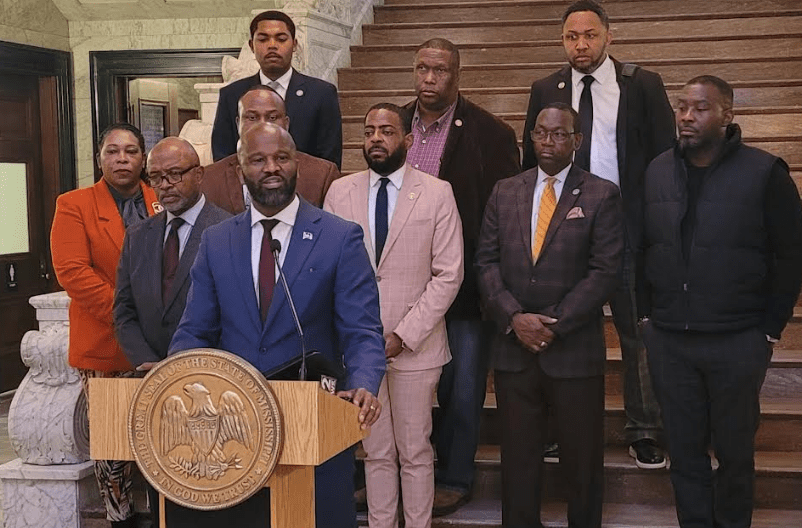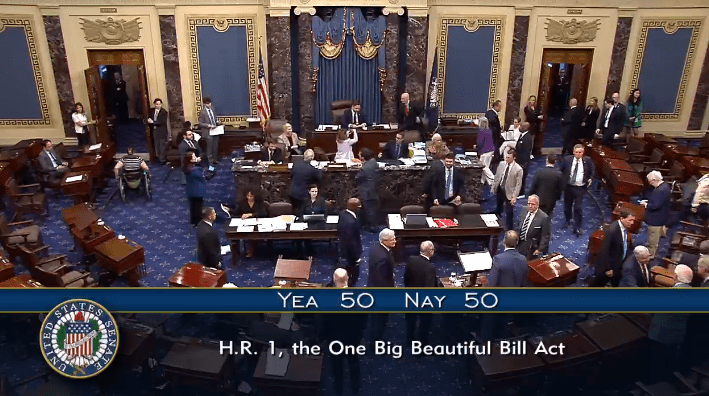Week six of the 2009 legislative session was a blur, as the Senate passed several pieces of legislation hoping to better the lives of Mississippians.
The Senate’s passage of House Bill 1628 would allow our state to assist with the creation of 275 full-time jobs by year 2011, with the number of new jobs expected to increase to 800 by year 2017. These high technology jobs would be provided by Alliant Techsystems Inc., an aerospace company that manufacturers and develops parts for the United States military and the commercial airline sector. With over 17,000 employees and operations in 21 states, it is currently the largest manufacturer of military and police ammunition in the nation. For the newly created Mississippi jobs, the average salary per employee would be $53,000 – well above the state’s average.
We also passed Senate Bill 2746, legislation that would allow large scale food preparers like the University of Mississippi Medical Center to donate leftover food to charitable organizations. The donation of edible food is an honorable program for food preparers to implement, as demands for hot meals from our needy and homeless populations have risen during the current recessionary period.
In addition, after a long debate regarding the proper role of government in a free society and the inappropriate use of eminent domain to take private property for non-public application, we passed Senate Bill 2230, an important piece of legislation that specifically limits the government’s abuse of eminent domain to only those projects which are actually for the public use, as traditionally understood.
The bill represents a much-needed corrective response to the United States Supreme Court case of Kelo v. New London. Pursuant to Kelo’s majority opinion in 2005, all private property became vulnerable to government taking and subsequent transfer to another private owner, so long as the property might potentially be upgraded or put to a higher use – that is, forcibly given to another owner who promises to use the property in a more beneficial manner.
Supreme Court Justice Sandra Day O’Connor properly interpreted the practical, real-world effects of the majority’s misguided decision, when she explained in her dissent, “[The Court] holds that the sovereign may take private property currently put to ordinary private use, and give it over for new, ordinary private use, so long as the new use is predicted to generate some secondary benefit for the public – such as increased tax revenue, more jobs, maybe even aesthetic pleasure.”
The Senate accurately recognized that such an approach is contrary to good government, representing an obvious repudiation of early Constitutional principles. “[T]hat alone is a just government,” wrote James Madison, “which impartially secures to every man, whatever is his own.”
Pursuant to SB 2230, true public use projects like the creation of roads, bridges, utility projects, schools or courthouses would still benefit from the state’s coercive exercise of eminent domain. However, the bill specifically mandates that the power of eminent domain shall never be exercised for the purpose of taking or damaging privately owned property for private development or for a private purpose; or for enhancement of tax revenue; or for transfer to a person, nongovernmental entity, public-private partnership, corporation or other business entity.
In other words, if the bill is signed into law, Mississippi’s citizens would no longer be subjected to government sanctioned improper land grabs.
Seeking enhanced accountability for our children, we passed Senate Bill 2628, “The Children First Act of 2009.” The act establishes a process by which the state identifies troubled or failing school districts in order to provide them with needed leadership and management oversight. It would allow the state to work with failing school districts for two years by implementing instructional strategies and professional development for teachers and administrators. If the school district does not make satisfactory progress, the state would then take operational control over the district.
It likewise provides transparency, since the surrounding community will be able to research how well respective school districts are educating students. The bill would require each local school district to develop and publish an annual report each year. The report would be published in a newspaper having general circulation in the county and posted on the school district’s website in a printable format.
The education of our children is a matter of significant public importance. It is my desire that SB 2628 helps to provide real educational opportunity for all Mississippi children.
Other measures passed by the Senate last week included Senate Bill 2616, legislation that would update the statutory code by specifically making it illegal to present a false ID at a liquor store. And the Senate’s passage of Senate Bill 2867 would increase the fine from $500 to $1,000 for driving without proof of insurance. It would allow any violator who subsequently purchases insurance after being issued a citation to pay a fine of only $100.
Next week, we will continue the committee process, considering bills originating in the House of Representatives.
As always, if you have any questions, please feel free to contact me anytime.
Senator Chris McDaniel
Mississippi Senate







